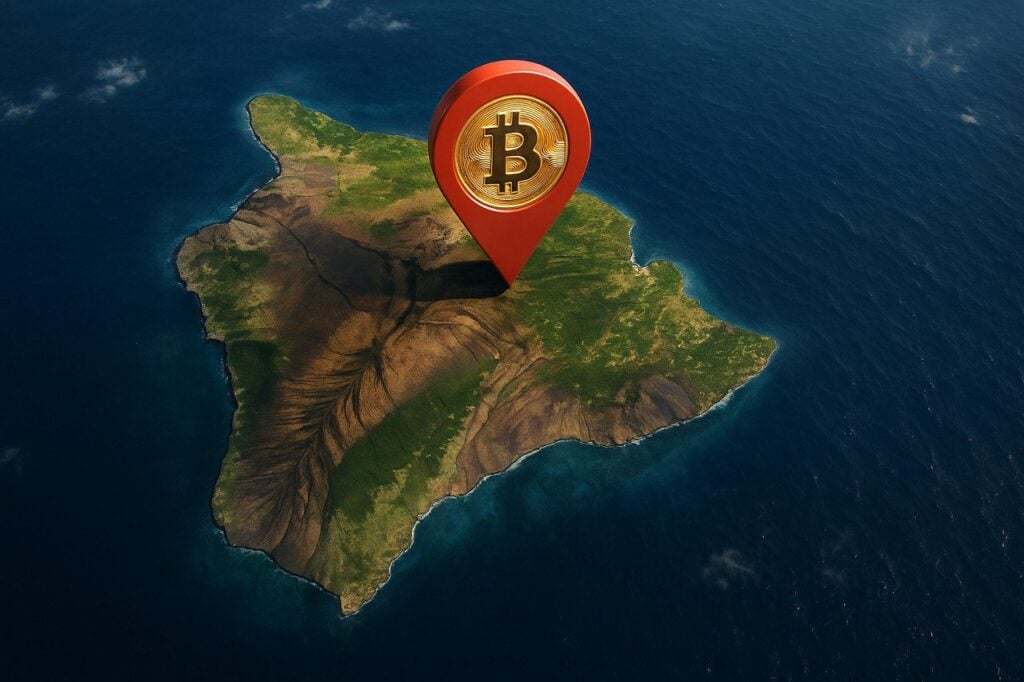Pacific Island Nation Nauru Legislates for Crypto Sector Oversight

The world of cryptocurrency, that grand casino where hope, hype and occasionally outright delusion dance a dizzying tango. The latest cryptocurrency news today brings us a dispatch from the Pacific nation of Nauru, a place so small you might miss it on a map, now aspiring to become a “crypto hub.” Yes, Nauru, all 21 square kilometers and 12,500 souls, fresh from a history of phosphate-fueled boom-and-bust and hosting Australian asylum seekers, now wants to be a beacon for blockchain brilliance and Web3 wizardry by establishing its own crypto regulator.
One hardly knows whether to chuckle or weep. The sheer audacity is almost admirable, if it weren’t so deeply concerning. It becomes even more surreal when you recall that Sam Bankman-Fried’s brother, of the infamous FTX cryptocurrency exchange parish, once apparently schemed to buy the entire island of Nauru with FTX funds, planning to build a doomsday bunker. When your nation becomes a footnote in the apocalyptic fantasies of crypto-barons, perhaps diving headfirst into the crypto maelstrom isn’t the wisest economic strategy. So, when Nauru rolls out the welcome mat for bitcoin traders and token issuers, the discerning observer sees less a leap into modernity and more a vulnerable nation teetering on the brink of another misadventure.
Why this sudden embrace of the digital wild west? Nauru’s President, David Adeang, offers the standard script: this is a “bold step” to “diversify revenue streams and fortify economic resilience,” even suggesting new funds for Nauru’s Intergenerational Trust Fund. It’s a familiar refrain, particularly from smaller, economically stressed nations grasping for a financial lifeline. The allure of blockchain technology, the promise of innovative tokens (including those famously reliable stabletokens), and the dream of attracting a torrent of investment can indeed be intoxicating. For a nation deemed highly exposed to economic shocks, the siren song of “innovation,” however risky, must sound tempting.
But let’s lift the curtain on Nauru’s grand vision. They’re setting up the Command Ridge Virtual Asset Authority (CRVAA) to license crypto firms. And here’s where the alarm bells really start clanging. Under Nauruan law, cryptocurrency will be treated as a commodity, not a security. Payment tokens? Explicitly excluded from investment contract status. To the layman, this is jargon; to anyone who’s spent five minutes looking at financial regulation, it’s a giant, flashing neon sign reading: “Proceed with extreme caution, or better yet, don’t proceed at all.”
This commodity classification is a classic move from the crypto lobby’s playbook, a neat trick to sidestep the inconvenient disclosure requirements and investor protections that come with securities law. Nauru is essentially advertising itself as a regulatory light-touch paradise: “Crypto enthusiasts welcome! Those pesky rules from more developed economies? Don’t you worry your pretty little heads about them here.” The CRVAA is tasked with overseeing everything from cryptocurrency exchanges and initial coin offerings (a notorious haven for scams) to NFTs, crypto lending, and the whole DeFi shebang, plus stabletoken issuance. This is a monumental task for a nascent crypto regulator in a microstate with, one presumes, rather limited resources and expertise in such a complex, murky field. The idea that this will lead to “robust oversight” is, frankly, laughable. It looks more like an engraved invitation for regulatory arbitrage.
The stated goal is for Nauru to become a “digital asset leader.” But what kind of leadership are we talking about? Fostering genuine, sustainable innovation for the Nauruan people? Or becoming the go-to jurisdiction for crypto operators fleeing stricter scrutiny elsewhere? History is littered with small nations trying to strike it rich by offering lax financial regulation – think tax havens and flags of convenience. It rarely ends well for the host nation in the long run, often attracting unsavory characters and activities, and exposing the country to enormous reputational and financial risks.
The irony of President Adeang hoping to funnel crypto profits into the Intergenerational Trust Fund is particularly bitter. Nauru’s original trust fund, built on phosphate wealth, was largely squandered through mismanagement. To now believe that the highly speculative, volatile cryptocurrency market – where bitcoin can plummet overnight and major exchanges can evaporate taking billions with them (hello, FTX!) – will provide a stable foundation for future generations is a triumph of hope over experience, and possibly over basic financial sense. It’s more likely to introduce yet another layer of profound risk to an already vulnerable economy.
The shadow of FTX and the Bankman-Fried bunker plan hangs heavy. It’s a stark reminder of the wild ambitions and often dubious ethics that permeate parts of the crypto sphere. If Nauru is actively courting this world, it must be prepared for the kind of company it will keep. The blockchain isn’t a magic wand; the pseudo-anonymity of many crypto transactions is a gift to illicit financiers. Can Nauru’s CRVAA truly police this? The odds are stacked against it.
Let’s be clear: genuine financial innovation that lowers costs and improves access is valuable. But this Nauruan venture doesn’t feel like a careful fostering of fintech tailored to local needs. It feels like a desperate gamble on the global crypto casino, with Nauru offering itself up as a jurisdiction of convenience. This is part of a larger, worrying trend: vulnerable nations seeking quick fixes, mesmerized by technological hype. Sustainable development isn’t built on regulatory loopholes.
So, as Nauru embarks on this path, one watches with a deep sense of unease. This isn’t a story of bold progress; it’s a cautionary tale. Let’s hope, for Nauru’s sake, this crypto dream doesn’t curdle into another nightmare of squandered resources and broken promises. The world doesn’t need another race to the bottom in financial regulation, especially not in the wild, often treacherous, terrain of cryptocurrency.








